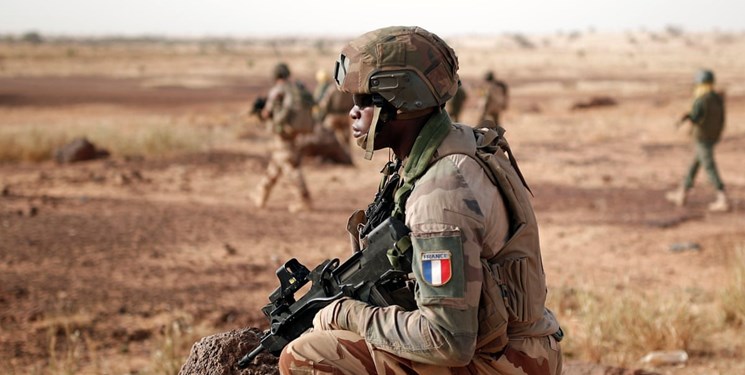French troops have left a key military base in the city of Timbuktu in northern Mali, handing it over to the Malian army nearly a decade after a military intervention in the West African country.
At a ceremony on Tuesday, the French flag was lowered and the Malian flag raised in its place at the base, where a force of about 150 soldiers had remained after France decided to scale down its military presence in the country earlier this year.
General Etienne du Peyroux, head of the French military operation in Mali, known as Barkhane, shook hands with the new camp commander and offered him a large wooden key as a French military plane made a low flyover.
The new Malian commander did not speak at the ceremony.
The French military emphasized in a statement that the Malian army maintains “a strong garrison in Timbuktu,” in addition to nearly 2,200 United Nations peacekeepers who are permanently deployed there.
The highly symbolic departure came after France withdrew its troops from its bases in the northern towns of Kidal and Tessalit in October and November, respectively.
Mali has become increasingly engulfed in violence since a Tuareg uprising in 2012 was hijacked by extremist militants, who perpetrated ethnic killings and attacks on government forces and civilians despite the presence of French and UN troops.
A French mission began operating in Mali in 2013 to allegedly counter militants that Paris claims were linked to the al-Qaeda and Daesh terrorist groups.
READ ALSO: UK inflation spikes to decade-high on eve of BoE rate call
In June, French President Emmanuel Macron announced a gradual drawdown of France’s military presence in the Sahel and the end of the “Operation Barkhane.”
The decision came amid mounting political instability in Mali, where Colonel Assimi Gotta carried out two coups in less than a year before being sworn in as the country’s interim president.
Mali accused France of abandoning the conflict-ravaged country with the “unilateral” decision to withdraw troops. Ever since tensions have been high between France and its former colony.
The rising tensions also came at a time when anti-French sentiment has become prevalent among Malians, who accused Paris of failing to contain the escalating violence and pursuing a hidden agenda. Back in October, hundreds of Malian protesters took to the streets in the capital, Bamako, to demonstrate against the French military presence in the West African country.
The French force, operating in Mali, Chad, Niger, Burkina Faso, and Mauritania, currently has 5,000 troops in the region. The deployment is due to fall to about 3,000 troops by next year.
France, a former colonizer, still controls countries in more than 12 territories and treats their people as second-class citizens following decades of slavery. Anti-French sentiments in former colonies have been a source of headache for Macron, the country’s first leader born after the colonial era.
The Caribbean territories of Guadeloupe and Martinique have recently been wracked by rioting and strikes that reflect long-running frustrations over inequality with the French mainland.
Late last month, the Nigerian government announced that two people were killed and 18 others wounded in clashes with French troops after a military convoy heading to neighboring Mali was blocked by protesters angry at the failure of French forces to counter the threat of terrorism in the region.

